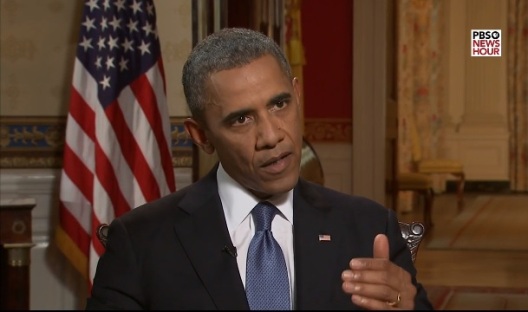 At a recent conference I was given the following question to answer: “What advice would you give President Barack Obama and his military advisers as they consider military and diplomatic action with regard to Syria?” Here, for better or worse, is how I responded:
At a recent conference I was given the following question to answer: “What advice would you give President Barack Obama and his military advisers as they consider military and diplomatic action with regard to Syria?” Here, for better or worse, is how I responded:
- Mr. President, make sure there is clear communication and complete understanding between you, your White House national security staff, your principal cabinet officers, the chairman of the joint chiefs, and the pertinent combatant commander(s) on matters pertaining to national security objectives, the overall political-military strategy to achieve those objectives, and the precise military mission or missions to be accomplished. There is nothing worse than imprecision of thought and language in matters of this nature. Ensure that your desires are clearly known to all relevant actors.
- Mr. President, national security objectives worth considering include the following: first, putting Bashar al-Assad’s regime out of the weapons of mass destruction business permanently; second, protecting allies and friends in the region by ending the Assad regime’s practice of mass terror, one that uses chemical and conventional munitions alike, against civilian populations by means of artillery, aircraft, rockets, and missiles; third, bringing an end to the Assad regime and al-Qaeda’s presence in Syria as soon a practicable; and fourth, replacing the Assad regime with a respectable transitional government, one standing for inclusiveness, reconstruction, reconciliation, and non-sectarianism – one predisposed to cooperate with the United States in the region and beyond. These are objectives, Mr. President. They do not imply US unilateralism or dictate specific means.
- Mr. President, an overall strategy might have several elements: first, maintain a credible threat of punishing military force to enable diplomatic efforts to get chemical weapons under international control and then destroyed, while seeking to persuade the regime through Russia to abandon its mass terror strategy, invite UN observers, implement Kofi Annan’s de-escalatory steps, and abide by the Geneva political transition formula; second, encourage the mainstream Syrian political opposition to establish on Syrian territory a government that the United States and other Friends of the Syrian People would recognize, support, and help defend; third, accelerate the training, arming, and equipping of the mainstream armed opposition so that it can simultaneously fight the regime and marginalize al-Qaeda and jihadist elements attracted to Syria by the regime and, for all practical purposes, collaborating with the regime; and fourth, work with the UN, NATO, and others to design a post-Assad international stabilization force that can facilitate humanitarian relief, enable economic reconstruction, and participate in the protection of vulnerable populations.
- Finally, Mr. President, if there is a role for kinetic action in all of this, make sure the chairman of the joint chiefs and key commanders know and can deliver the effects you wish to achieve. One potential military mission might be to destroy or significantly degrade the ability of the Assad regime to bring massed fires to bear on civilian population centers, whether by chemical or conventional ordnance. This would mean going after artillery, aircraft, airfields, rockets, missiles, and so forth. Reduced regime capabilities in these areas would bring relief to Syrians and to our allies and friends in the region. It goes without saying, Mr. President, that an operation of this nature would follow – not precede – a full-court diplomatic press to get chemical weapons destroyed and get the Assad regime out of the mass terror business. For as long as it is in that business, the prospect of your longstanding desire for a political solution to Syria’s nightmare is nil: no self-respecting, legitimate opposition figure would dare negotiate under those circumstances.
Frederic C. Hof is a senior fellow with the Atlantic Council’s Rafik Hariri Center for the Middle East.
Image: Interview with Judy Woodruff and Gwen Ifill where President Obama discusses US policy options in Syria (Photo: Screenshot of PBS interview/PBS.org)
